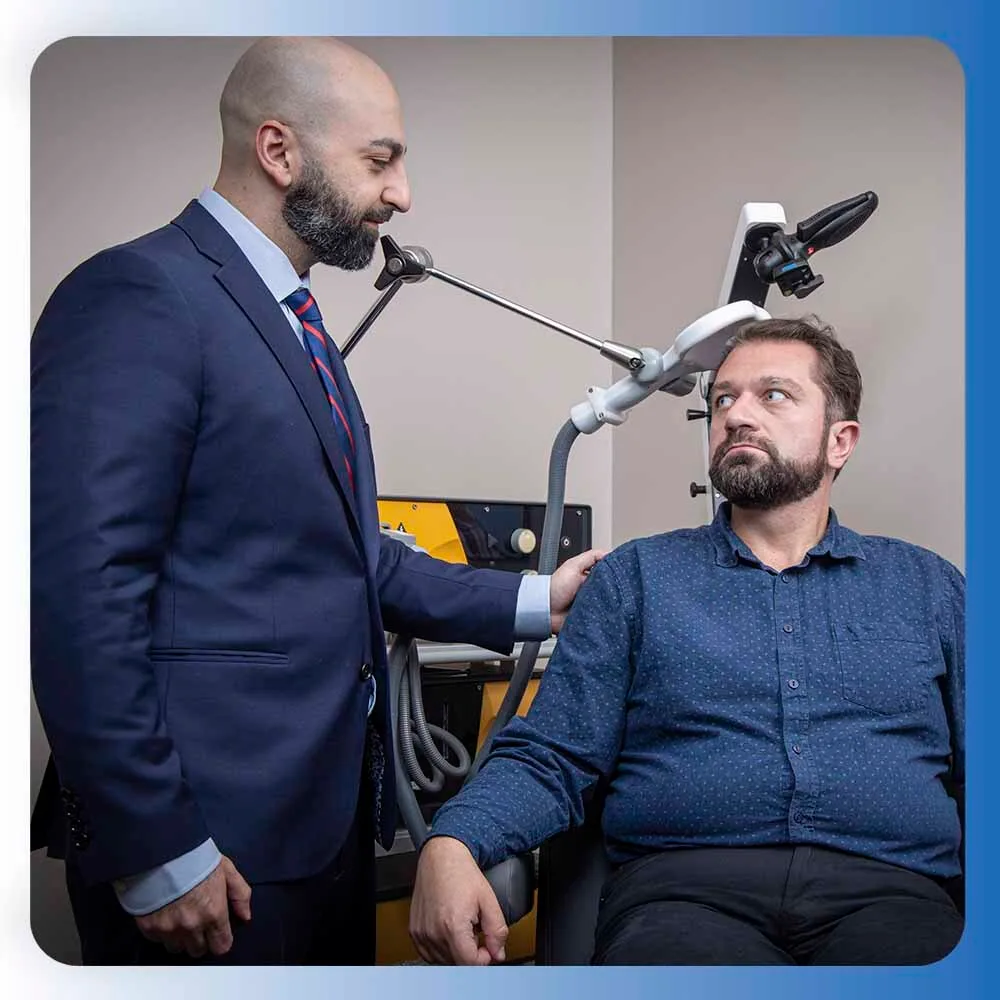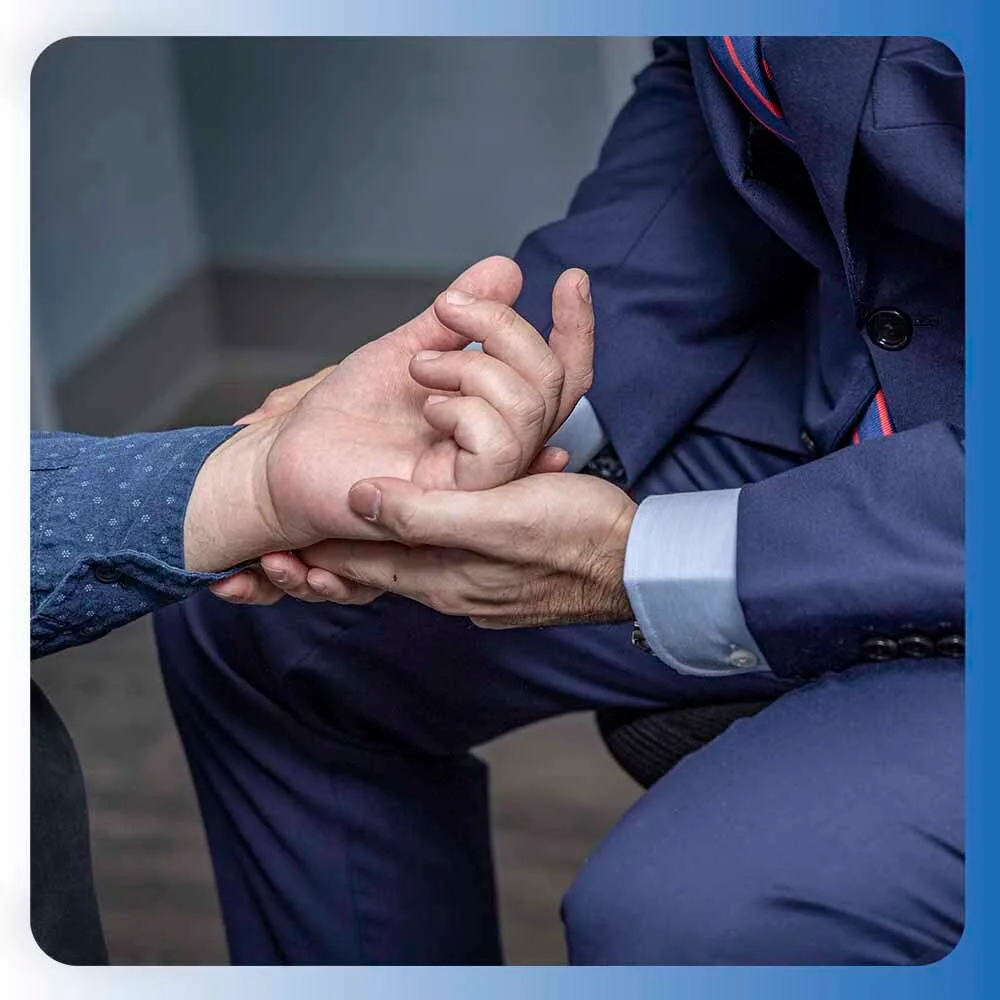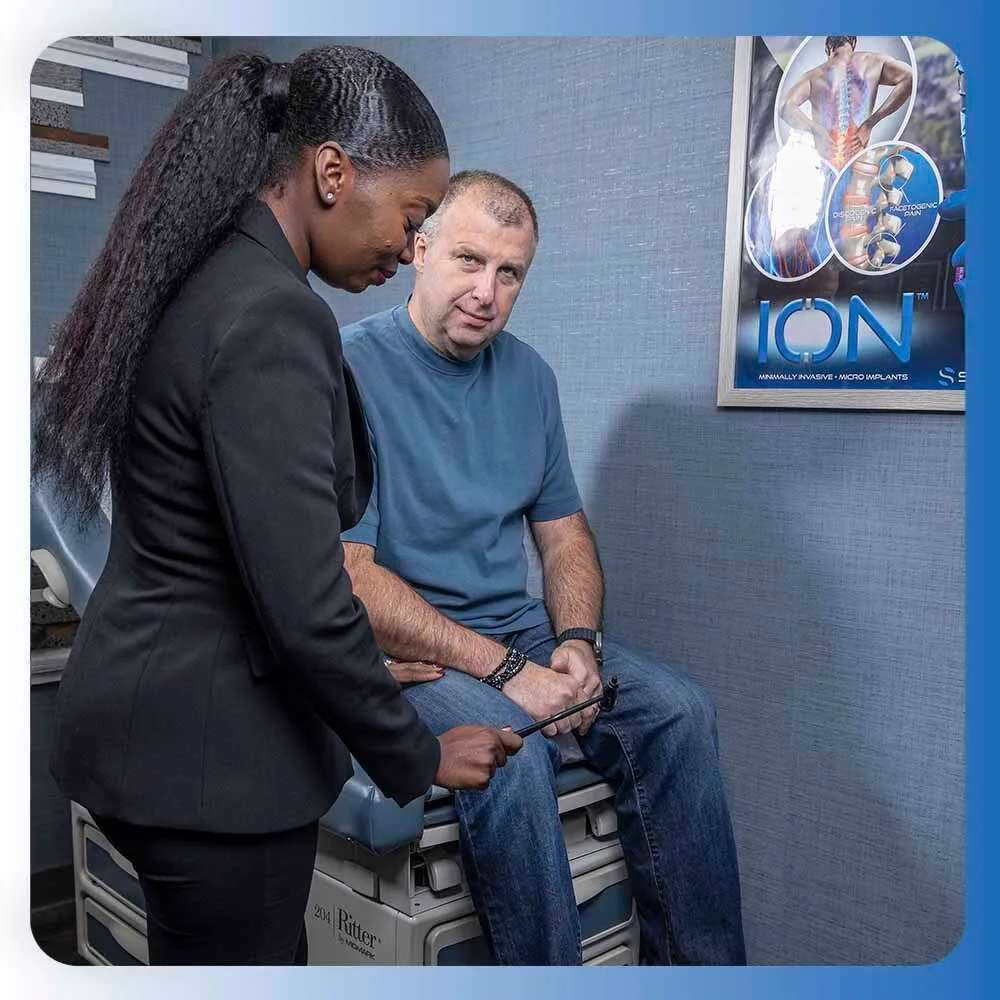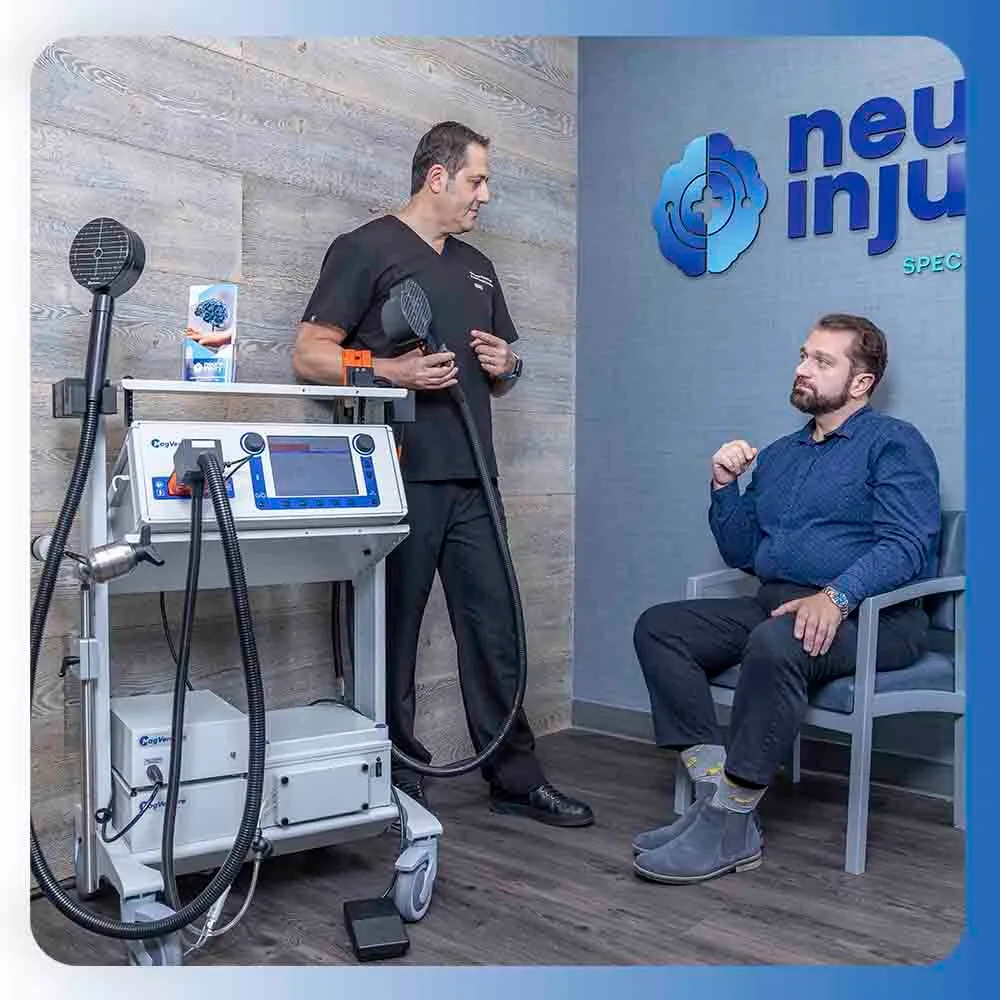Neuropathy TreatmentsWhat Are Available Neuropathy Treatments?
A neuropathy doctor must identify the best neuropathy treatment plan for your specific type of neuropathy, as treatment is dependent on the underlying cause and degree of symptoms.
A general neuropathy treatment includes:
- Neurostimulation which stops damaged nerves from sending pain signals to your brain.
- Transcranial magnetic stimulation
- Pain relievers, antidepressants, anticonvulsants or opioids
- Scrambler therapy, a non-invasive treatment designed to retrain the nervous system and alleviate chronic neuropathic pain.
- Capsaicin or lidocaine creams or patches
- Exercises to develop strength and balance
- Transcutaneous electrical nerve stimulation (TENS) involving the use of a low-voltage electrical current
- Managing underlying conditions by maintaining a healthy diet and avoiding alcohol
- Surgery in severe cases to relieve nerve compression or restore damaged nerves
- Assistive devices such as braces, orthopedic footwear or canes
While not all kinds are preventable, a number of measures may significantly reduce the risk and delay the onset of neuropathy. Begin by limiting your exposure to pollutants, taking precautions to avoid injuries and practicing proper foot care.
Neuropathy can cause psychological distress as it disrupts regular sleep patterns and leads to mood swings and elevated levels of anxiety and depression if left untreated. Immediately contact Dr. Cohen at Neuro Injury Specialists to reduce your pain and get informed about all the possible neuropathy treatments.

 We accept most insurances, including Medicaid, Medicare, checks, cash, credit cards, and Care Credit Financing.
New Patient Coordinator: (646) 334-4326
info@neuroinjuryspecialiasts.com
(718) 998-9899
We accept most insurances, including Medicaid, Medicare, checks, cash, credit cards, and Care Credit Financing.
New Patient Coordinator: (646) 334-4326
info@neuroinjuryspecialiasts.com
(718) 998-9899



